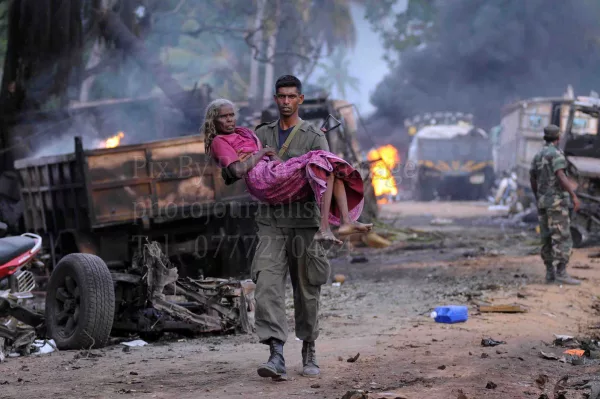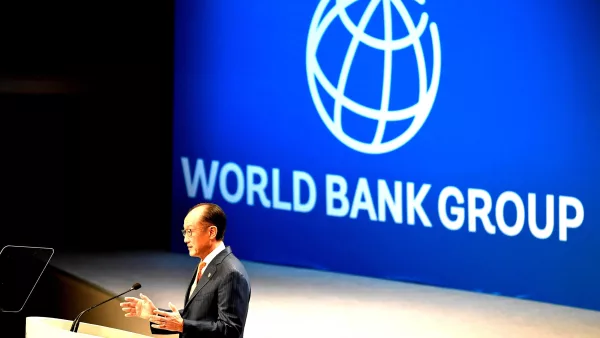In 2005, former Secretary-General Kofi Annan embarked on a vision to bridge the gap between words and actions within the United Nations. He outlined his new vision and the creation of the Human Rights Council in his report titled “In Larger Freedom: Towards Development, Security, and Human Rights for All.” And so, in 2006, the Human Rights Council was born, comprising 47 national states selected by the UN General Assembly, allocating a certain number of seats for each region. It was a moment of promise that the UN would begin not merely commenting on global human rights violations and providing mandates but also actively implementing and enforcing its values: peace, international cooperation, and protecting fundamental rights. However, instead of preventing suffering and upholding human rights, the UN Human Rights Council faltered like its predecessor.
During the Sri Lankan Civil War, the Human Rights Council failed to halt war crimes executed by the government and the involved terrorist groups, including torture and citizen disappearances. Yet, even the assassination of the Indian Prime Minister Rajiv Gandhi and the former Sri Lankan President was insufficient for the UN to take action. It took 11 long years, until 2021, for the Council to support a resolution to gather evidence of these violations, as if they lacked enough proof after a previous mandate issued in 2014, once again calling for an investigation to hold accountable those who orchestrated the massacre of thousands. Meanwhile, people who are prosecuted with much less evidence and often falsely accused with no right to parole are on death row, awaiting execution by suffocation with nitrogen gas in American prisons. There is only one straightforward explanation for this disparity of injustice: the UN Human Rights Council is fundamentally flawed. It is an institution that every three years is undoubtedly comprised of member states with questionable human rights records, and some even violate human rights severely, like Eritrea, whose forces have carried out large-scale massacres and attacks on refugee camps, or Cuba, where torture of political dissidents is government-approved and Somalia where child soldiers are a common phenomenon.

Given that most countries participating in the UN are not democracies, and several regions are vastly dominated by authoritarian rule, it is not a surprise that the vast majority of states that end up being on the Council have very poor human rights records. Most dictatorships pursue this membership for propaganda purposes to proclaim their respect for human rights domestically. This is precisely what the Russian Federation attempted to do by applying to be re-elected to the Council for a fresh three-year term. Our rights are protected by countries whose only motive to participate in the Council is to pursue their political agendas by undermining actual attempts to protect fundamental human rights. So, it is up to us to hold them accountable whenever they neglect a human rights crisis. Every time they cite procedure, insufficient funds, and lack of power as reasons for their inaction, we must remind them of their solemn pledge “to play an active role in removing the current obstacles and in meeting the challenges to the full realization of all human rights and in preventing the continuation of human rights violations throughout the world.”
Because if we are not going to defend our rights, who will?
The authoritarian state will. It will defend them so extensively that all violations will be rendered inconceivable. And should you think that your rights do suffer under this protection, you will be dismissed as hysterical, oblivious to the state’s honorable attempts to guard your liberties. Transgressions are rendered unimaginable. The state is holy and only acts in the name of the common good, no matter what it takes. If it takes thousands to be executed and unlawfully prosecuted, it is the price to pay for security of the state.

Despite the widespread Western belief in a globally democratized world, the harsh reality is that according to the Human Rights Foundation’s 2021 report, a staggering 54% of the world’s population lives under authoritarian rule, which means the daily ruthless violation of the fundamental human rights of 4.2 billion people worldwide. At the same time, the World Bank and the International Monetary Fund, as well as other democratic states such as the United States, make loans and finance policies of these dictatorial states. In doing so, both the WB and the IMF violate international pacts on human rights, offering authoritarian regimes a free pass.

Authoritarianism is the most significant obstacle standing in the way of freedom. Astonishingly, it is the UNHRC, the organization specifically tasked with the suppression of the rise in authoritarianism and promotion of the protection of human rights, that reinforces control and oppression. UNHRC perpetuates it, betraying its fundamental objectives and the global fight for human rights.
International organizations, including the UN, are too reluctant to take action and implement effective measures to encourage democracy. Instead, they settle with giving out help equivalent to breadcrumbs to victims suffering the consequences. The most important reason for UNHRC’s failure is the misjudged focus – it prioritizes the protection of human rights when it should be focusing on prosecuting tyranny and confronting authoritarian states, for it is the elimination of authoritarianism that will secure human rights. The UN currently provides no anti-authoritarian regime task force or Sustainable Development Goal against dictatorships. It is time that the UNHCR’s framework will be reevaluated and pledges its absolute commitment to battling authoritarianism.
The new vision for the UN Human Rights Council in 2006 was for the Council to replace promises and encourage peace mandates with tangible actions, yet the idea has proven itself to be a visionary’s dream. Almost nothing has changed. It is time for policymakers to realize that it is not the image nor the name that needs to change but the substance of the Council for it to function correctly. The Council must address the world’s root cause of human rights abuses – authoritarian policies and practices. Only when this is achieved can the Council fulfill its pledge; otherwise, it will continue to perpetuate control and oppression. Finally, our global citizens are responsible for upholding the values of peace, international cooperation, and fundamental rights for all. If the UN Human Rights Council denies change, we call to arms.
Featured image: UNITAR






